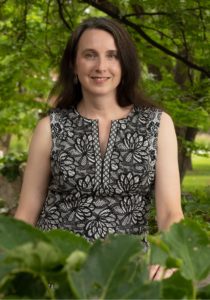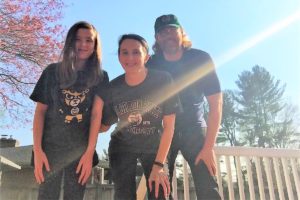Charlotte Bright knew that only a very special job could lure her away from her 13-year career and associate dean position at the University of Maryland School of Social Work in Baltimore.
She was open to a leadership opportunity at a social work program that was focused on social justice and anti-oppression, with an emphasis on applied research. It couldn’t be too large a program, because she would want to stay closely engaged with the faculty, staff and students.
Then Bright saw a job opening at Colorado State University on a listserv from a professional association.

“I saw it and thought, ‘That’s the job; that’s the right job for me,’” she recalls. “I sort of thought my ideal job was imaginary until I realized that it exists, and this is where it is located.”
Bright will start as the new director of CSU’s School of Social Work on July 1, succeeding Audrey Shillington, who left last year to become dean of the College of Health and Human Sciences at San Jose State University. Professor David MacPhee has held the position on an interim basis.
“I am thrilled to welcome Charlotte Bright as the new director of the School of Social Work,” said Lise Youngblade, dean of the College of Health and Human Sciences, which houses the School of Social Work at CSU. “She brings tremendous experience to the role, and her vision and commitment to social work in the context of premier land-grant institutions is inspiring. I am looking forward to the school’s continued forward momentum under her leadership.”
A musical start
Bright earned her undergraduate degree in piano performance from the University of Iowa. But growing up with two very educated parents — a physician in academic medicine and a physical therapist — she had always been an avid reader with a passion for equity and human rights. When faced with the prospect of finding piano gigs, she decided to pursue a master’s degree in social work from the same university.
After completing her master’s in 2000, Bright practiced social work for about four years in Cedar Rapids, Iowa. But she also recognized that social workers could benefit from applied academic research.
“As a practitioner, I was painfully aware that we didn’t always know what we were doing, and that scholarship in social work had important implications for how social work is practiced and for the policies that guide social workers,” Bright says.
So she pursued her Ph.D. in social work from Washington University in St. Louis, and landed a job as an assistant professor of social work at the University of Maryland, where she’s been ever since.
“My interview with CSU was the first time I’d interviewed for a job since 2008,” Bright says with a laugh. “Luckily I’d been on the other side of interviews, so I wasn’t completely out of practice, but I had to dust off some skills.”

Preparing people for practice
She started out teaching first-year master’s students how to be good practitioners.
“Social work is not an easy career, and there are a lot of ethical dimensions to social work practice,” Bright explains. “There’s just a lot to learn, and sometimes we’d have challenging conversations — people coming to grips with things that were challenging for them as individuals — but it was rewarding to be one of the people to guide them through that.”
She has spent the last seven years teaching Ph.D. students, so she’s gone from being a social worker to training future social workers and those who will train future social workers. Her scholarship has been focused on areas like juvenile justice services and how they are implemented in communities, gender differences, and the impacts of trauma.
In addition to serving as UMB’s associate dean for doctoral and post-doctoral education, she is editor-in-chief of the journal Social Work Research, is a Society for Social Work and Research Fellow, and has held leadership roles with the Group for the Advancement of Doctoral Education in Social Work.
Impressions of the school
Bright said she’s been impressed with how highly skilled CSU’s social work faculty are in a variety of areas, and she looks forward to emphasizing the public impact of teaching and scholarship. In particular, she lauded the school’s Committee for Social Justice because it involves faculty, staff and students.
“That’s not always the case,” she says. “I think that’s a great model for other decision-makers at the school, and for other decision-makers on campus, on how priorities get set.”
In addition to enjoying outdoor activities, reading, travel and animals, Bright loves music and still dabbles in piano.
“Mostly, my love for music is as an appreciator rather than a player,” she says.
Bright has relatives in Colorado, and her husband and 10-year-old daughter are looking forward to the move.
“They are very excited,” she says. “The proximity to family is very appealing to them. They’re eager for the adventure.”
About the School of Social Work
Since the first baccalaureate social work major was first offered in 1968, Colorado State University’s School of Social Work has made a continuous effort to develop and maintain a program that is responsive to the standards of the social work profession, to the needs of human services agencies and clients in the state, and to the land-grant mission and goals of CSU. The school’s mission is to provide exemplary education, applied research, and transformative outreach to advance social, environmental, and economic justice; promote equity and equality; alleviate oppression; and enhance human health and well-being across local and global community systems.
The School of Social Work is part of CSU’s College of Health and Human Sciences.